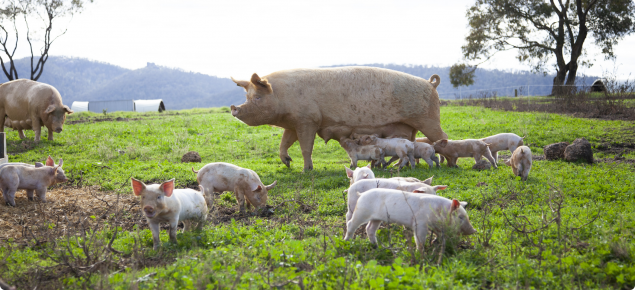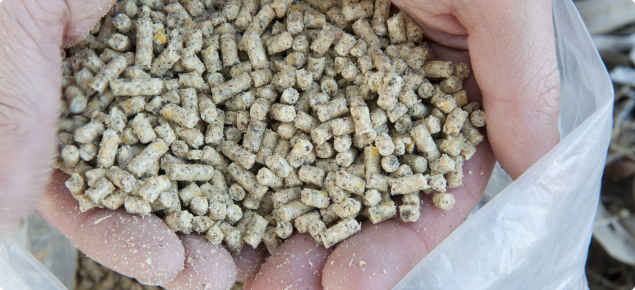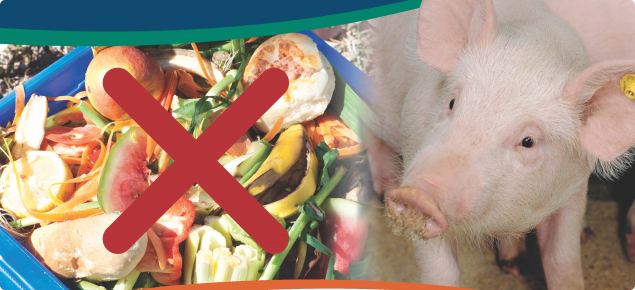1. Pig feed
It is illegal to feed meat, products that contain meat or have had contact with meat and non-Australian dairy to pigs. This is known as prohibited pig feed or swill feeding.
Illegal pig feed can cause a number of serious livestock diseases, including:
- African swine fever (ASF): keep Australia free
- Classical swine fever (CSF): keep Australia free
- Foot-and-mouth disease: keep Australia free
Pig owners must ensure:
-
anyone who has contact with their pigs knows what they can and cannot feed them
-
feral pigs cannot access food waste on their property - including from farm dumps.
Read more on the correct pig feed page. (This page also has links to materials for non-English speakers.)
2. Biosecurity
- Ensure that farm visitors and staff do not have contact with your pigs if they have been overseas in the previous seven days.
- Ensure feral pigs cannot access domestic pigs or pig facilities through appropriate segregation and fencing.
For detailed biosecurity guides, see:
DPIRD small landholders biosecurity guide:
Animal Health Australia:
Australian Pork Limited (APL):
- Pig biosecurity for ASF
Federal Department of Agriculture:
3. Feral pig control
All landowners have a responsibility under the Biosecurity and Agriculture Management Act 2007 to manage declared pests such as feral pigs on their land.
Control methods such as baiting with 1080 and trapping are preferred. These techniques concentrate feral pigs and provide the best opportunities to significantly reduce feral pig abundance in your area.
Hunting and the use of dogs to catch feral pigs should be avoided, as this can cause pigs to disperse or move to other areas, increasing the risk of spreading African swine fever if it occurred in Australia.
For the best options for management on your property, see:
- DPIRD - feral pig control: baiting with 1080
- DPIRD - feral pig control: trapping
- the PestSmart website.
4. Traceability
Make sure you have registered your ownership of pigs with the Department of Primary Industries and Regional Development. Traceability of all pigs during a disease outbreak is crucial to effective disease eradication.
Ensure you include your email address as part of your registration so that we can contact you quickly during an emergency.
For help with registering, see:
- Livestock ownership, identification and movement in Western Australia
- Registration forms for livestock ownership
- Phone: 1300 WA NLIS (1300 926 547)
5. Report pig disease signs to a vet immediately
If you see signs of disease in your pigs that could be African swine fever, call your vet or the Emergency Animal Disease hotline immediately on 1800 675 888. The faster a disease is reported, the less chance it has to spread, reducing the impacts of eradication.
6. Stay up to date with livestock biosecurity news
The Department publishes a regular e-newsletter on animal health and biosecurity in WA. Stay up-to-date with the latest information. Subscribe to:




